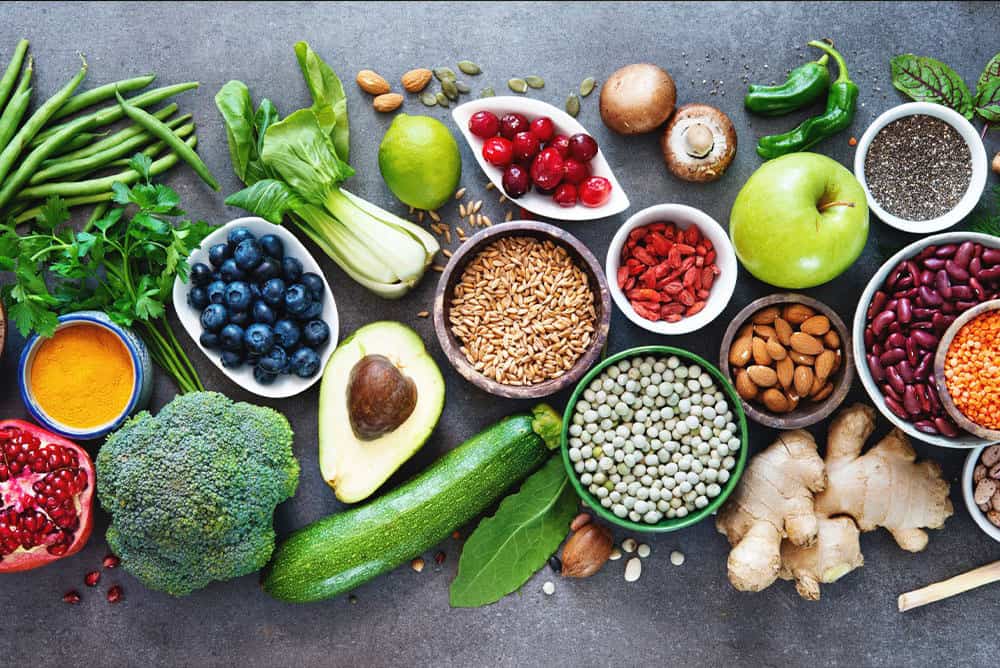When recovering from addiction it’s important to pay attention to all aspects of your health including your mental, emotional, and even physical well-being. Many people overlook the importance of maintaining a healthy diet as a key aspect of recovery.
And although the other aspects of recovery like counseling or following the 12 steps often get more attention as the main components of recovery, nutrition for recovering addicts is also necessary. When you eat better, you feel better and it’s truly as simple as that.
Your body and mind work hand in hand so it’s crucial to your overall health to nurture both. When transitioning away from a life of addiction, you often begin to see that you had pre-established eating habits that probably weren’t benefitting your body or your brain. In this article, we will show you many ways that you can change your diet to promote good nutrition and vitality.
Realizing the Connection
Substance abuse of any kind, whether its alcohol or drugs, depletes your body of all kinds of things that are needed to maintain optimum health. Both drugs and alcohol are toxic to the body and disrupt chemical processes within the brain.
Having a substance abuse problem increases your risk of being malnourished since many substance abusers will ignore their dietary needs due to reliance on their drug of choice. It is also common for users to ignore feelings of hunger or mistake these feelings as a need for more of their desired substance.
Different substances are going to have varying long term effects on your health. It can help to understand what these effects are so you can know what areas of your nutrition are suffering the most.
Alcohol
Excessive alcohol consumption can cause an array of issues in your body. Immediate difficulties are often associated with your gastro intestines and can include upset stomach, vomiting, or diarrhea.
Alcohol also depletes your body of thiamine. Thiamine is an important vitamin that is used by every tissue in your body for proper functioning. If your thiamine levels are low you are at higher risk of having heart disease. Alcohol also leads to vitamin B deficiency.
Opioids
Once opioids enter your body they slow down all bodily functions, which is why they commonly make people feel sleepy. Your digestion and metabolism are slowed down when using these drugs which makes it very difficult for your body to absorb nutrients from food.
Opioid users often experience intense withdrawals that cause them to not want to eat or drink water, even though when your body is going through withdrawals it needs proper food the most.
Stimulants
Chronic users of stimulants often suffer from dramatic weight loss or eating disorders since stimulants suppress your appetite. These drugs can cause you to go on benders or days without sleeping or eating.
Episodes like this are detrimental to your health and lead to extreme cases of malnutrition. Often times benders are followed by binge eating once the extreme hunger sets in.
Establishing Good Nutrition for Recovering Addicts
After going through a substance detox it can be a bit overwhelming to then focus your attention to your diet. But maintaining a healthy diet will help you to continue to feel better after your recovery, and can help to reverse some of the damage that your body has gone through.
Establishing a routine that works for your life and building healthy habits will help to bring you a mental and physical balance. There are several things you can do to get your nutrition back on track and ensure that your mind and body are at it healthiest.
1. Meet with a Nutritionist
Depending on what addiction you are recovering from, your nutritional needs are going to vary. After an intense detox, your body still needs time and the proper fuel to recover.
By talking with a professional you can get great insight on what you specifically need to regain optimum health. A nutritionist or dietitian will help you establish a realistic plan and can also work with you as an accountability partner to make sure you see it through.
2. Give Yourself Goals
Goals are a great way to establish a sense of personal accountability. Just as you set goals for your recovery, you can also set goals for maintaining your new healthy habits.
By setting goals you can begin to track your progress and see how hard you’ve worked. Setting attainable goals like drinking a certain amount of water every day is not only going to better your health but they will also boost your confidence in yourself.
3. Make a Meal Plan
Achieving the goals you set for yourself will be even easier if you make a plan. Even if you decide not to work with a nutritionist, you can still schedule out your daily meals.
By making a schedule you will avoid being hungry and caught off guard, which can lead anyone to make bad dietary choices. You can make your meals stress free and easy to access if you pick one day and do a little meal prep.
4. Stock Your Fridge with Healthy Foods
If you want to stick to healthy eating, you want to make sure you aren’t surrounding yourself with tempting junk food. Make an effort to keep your fridge and pantry stocked with things like fruits, veggies, and whole grains.
It’s easier to make food choices that are healthy when that’s all that is available to you.
5. Exercise
Heaving a healthy balance between your body and mind is crucial for both systems to work at their best. And although eating healthy and regularly is a huge part of it, you also need to remember to get physical activity.
Once you pair exercise with healthy eating you’ll see a world of difference in how you feel. The two together promote healthy brain function, better sleeping, and reduce anxiety.
Living a Healthy Life
Nutrition for recovering addicts is just as important as taking care of mental health. By keeping these tips in mind you will begin to notice an elevation in your energy levels and your overall mood.
Your body and brain deserve to be given the best fuel you can give it. And eating healthy is a great way to get these two systems running their best. For more treatments options head over to our website.
Author
-

President, CEO & Founder at Northbound Treatment Network
Paul Alexander is the CEO, President & Founder of Northbound Treatment Network in Newport Beach, California. He believes wholeheartedly in transformational leadership, organizational health and effective, fully integrated substance use disorder and mental health treatment. With over 27 years of experience in behavioral healthcare, Paul has extensive knowledge of “in vivo” treatment modalities, clinical development, operations, strategy, marketing and financial planning. He has been widely recognized for his development of collegiate-based residential treatment programs for students in recovery and authored a research study at The University of California confirming this modality’s effectiveness.
Paul’s comprehensive professional experience, willingness to innovate, and emphasis on organizational health are vital factors in Northbound’s continued success. Paul received his Certified Addiction Treatment Specialist training at Saddleback College in Mission Viejo, CA, and was awarded Outstanding Alumni Service Award in 2002. Paul holds a Bachelor of Arts degree in Criminology, Law and Society, Summa Cum Laude, from University of California, Irvine, and a Juris Doctorate degree from Loyola Law School of Los Angeles. Paul currently serves on The National Association of Addiction Treatment Providers (NAATP) board. In addition, he serves on The Family Recovery Foundation board and The CarePossible board in Orange County; both organizations are committed to raising funds for family recovery and treatment for former military personnel. Paul is in recovery himself and lives in Orange County with his wife Silvana and his two young sons, Noah and Dean.










